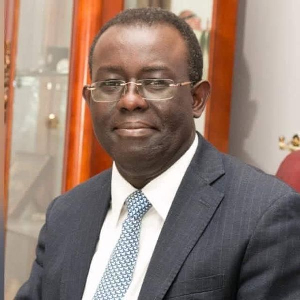In a groundbreaking move, the Ghanaian government is poised to adopt blockchain technology as a cornerstone for modernizing its record-keeping systems. Drawing inspiration from Estonia’s success story, Ghana aims to leverage this innovative technology to drive economic development and ensure robust data protection.
Why Blockchain for Ghana?
Blockchain technology provides a decentralized and tamper-proof method of recording information. Once data is entered, it cannot be altered without detection, ensuring transparency and security. For Ghana, this technology could revolutionize the management of government records, including land registries, tax records, healthcare, and education systems.
Currently, many government sectors rely on paper-based record-keeping, which is prone to errors and fraud. Adopting blockchain can eliminate these inefficiencies, build trust in public records, and make processes faster, cheaper, and more reliable.
The Estonian Example: A Blueprint for Success
Estonia, a small European nation, has set a global benchmark by integrating blockchain into its government services. Since 2008, Estonia has used blockchain to secure its national data, including health records and judicial decisions. This integration has enhanced data security and streamlined government operations, saving both time and resources.
For instance, Estonians can vote online, access their health records, and even file taxes with a few clicks, all thanks to blockchain. The system ensures that all data transactions are secure and verifiable, reducing the risk of fraud and errors. This efficiency has positioned Estonia as a leader in digital governance and economic innovation.
Advantages for Ghana
Economic Growth: Blockchain can drive economic development by creating a more efficient and transparent environment for businesses. It can reduce corruption and bureaucracy, making Ghana more attractive to investors.
Data Security: With increasing cyber threats, blockchain’s robust security features will protect sensitive government data from breaches and unauthorized access.
Improved Public Services: Faster and more accurate record-keeping will enhance service delivery in healthcare, education, and other critical sectors.
Cost Savings: Streamlined processes mean reduced administrative costs, allowing more funds to be allocated to developmental projects.
Alexander Adu-Lartey, a Visionary Leader in Global Business Development, is working in collaboration with blockchain technology solutions providers and is leading this transformative journey. His mission is to partner with these global innovators to deliver cutting-edge solutions tailored to the needs of the Ghanaian government.
By aligning with Alexander Adu-Lartey, companies specializing in blockchain can join forces to implement a secure, transparent, and efficient record-keeping system for Ghana. This partnership is poised to bring about a digital revolution that will set a new standard for government operations across Africa.
Welcoming the Future: Embracing Blockchain in Ghana
As Ghana stands on the cusp of this digital transformation, it is essential for citizens to understand and embrace the benefits of blockchain. The shift to blockchain-based record-keeping is not just a technological upgrade but a leap towards a more transparent, efficient, and secure future.
By supporting this initiative, Ghanaians can ensure that their country remains competitive on the global stage, paving the way for a prosperous and technologically advanced nation. This is a collective effort, and every citizen has a role to play in welcoming and adapting to this new form of record-keeping.
The adoption of blockchain technology for government records is a forward-thinking move that promises to enhance economic growth, safeguard data, and improve public services.
Business Features of Monday, 27 May 2024
Source: Alexander Adu-Lartey

















